Past Initiatives

Gender inequalities are increasingly viewed as a weak link in the effective design and implementation of interventions aimed at reducing negative impacts of human activities on forests and people.
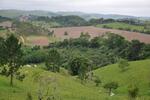
According to the International Energy Agency (IEA), the bio-energy sector will experience significant growth over the coming decade, rising from the current 10 percent to 30 percent of the world's primary energy mix by 2050. The world population is predicted to reach 9 billion by 2050 and will need food and energy.
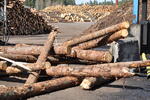
The last few years have seen the proliferation of forest product certification on international and national scales. Until recently, the systems for certifying these products stood fully apart from one another, with little communication about lessons learned or assessment of strategies.

Recognizing that there might be unrealized opportunities for collaboration between environmental groups and the forestry industry in the Atlantic rainforest region of Brazil—one of the most diverse and threatened areas of the world—TFD convened a series of dialogues from 2003 to 2007 focusing on improving cross-sectoral cooperation for biodivers
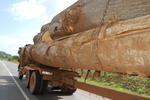
Recent acceptance of the role of forests in combating climate change provides significant opportunity for the forest sector to play an influential role in international climate policy negotiations, both under the UN’s Framework Convention on Climate Change and its associated Protocols, and in relation to the emerging voluntary market for forest-based carbon offsets.
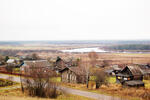
By some estimates, over a billion people in developing countries depend on forests for their livelihoods, yet commercial forestry—especially small-scale commercial forestry—has had limited impact on reducing poverty.
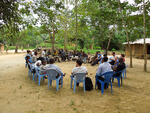
The phrase ‘free, prior and informed consent,’ and the acronym FPIC, refers to the right of indigenous peoples to give or withhold their free, prior and informed consent to proposed measures that will affect them. FPIC has already emerged as a core theme in several of TFD’s prior dialogue streams.

The application of biotechnology to commercial plantation forestry—or Intensively Managed Planted Forests (IMPF)—is a controversial topic.

Illegal logging in many regions of the world causes social conflict and violence while costing governments billions of dollars in lost tax revenue and harming forest ecosystem health.
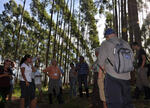
Plantation forests—even-aged stands of a single tree species established primarily for wood production—are one of the defining features of forestry in the past century.
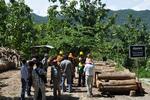
Forestland and forest-product enterprises managed by smallholders, community groups, and forest-dependent peoples can make significant contributions to sustainable development. However, the investment required for such enterprises is often lacking or misplaced.
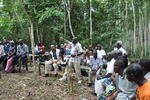
Land and forest tenure security has been recognized globally as a catalyser for stronger governance, improved livelihoods and increased conservation of natural resources. In the previous decades, governments have gradually recognized local peoples’ rights to forests and land.

As the dialogue surrounding REDD implementation evolved, financing this became an important part of the discussion. This dialogue stream identified key fracture lines among stakeholders about REDD finance mechanisms and progressed towards consensus-building and implementation.
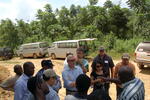
A subset of the Forests and Climate issue area, the REDD Readiness series arose as the political process for REDD began to move forward along the UNFCCC path to Copenhagen.

TFD continues to focus on climate change by bringing key leaders together to explore REDD+ Benefit Sharing. For REDD+ to be effective, a benefit-distribution system is needed to incentivize stakeholders, in particular the forest-dependent poor, to participate in REDD+. But a range of critical questions remain on the nature of such a system.

Small forest landowners manage millions of hectares of forestland around the world and therefore must be included in efforts to promote sustainable forest management.
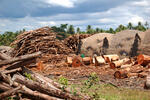
Using wood as fuel for heating and cooking is one of humankind’s oldest practices. An estimated one-half of the world’s population relies on wood-based biomass in the form of fuelwood and charcoal to meet their daily energy needs. Wood fuel production accounts for more than half of the annual global forest harvest.

Global efforts to combat deforestation in the past few decades have included a push for a binding international forest convention, the creation of voluntary certification schemes, development of sustainable forest management norms, and the emergence of timber legality verification.
